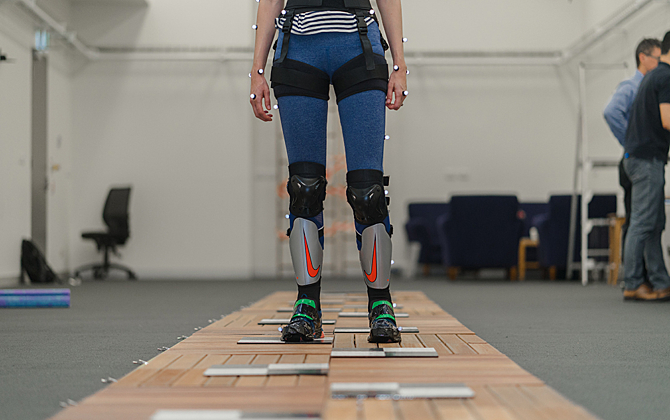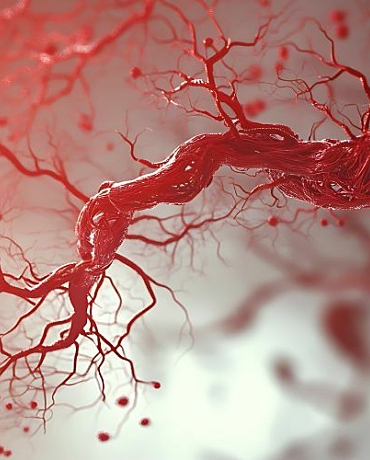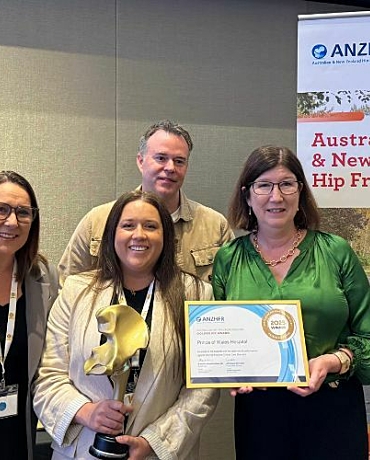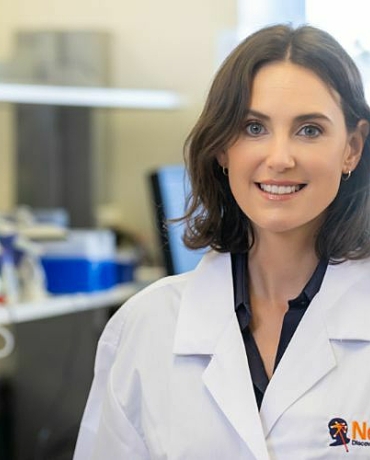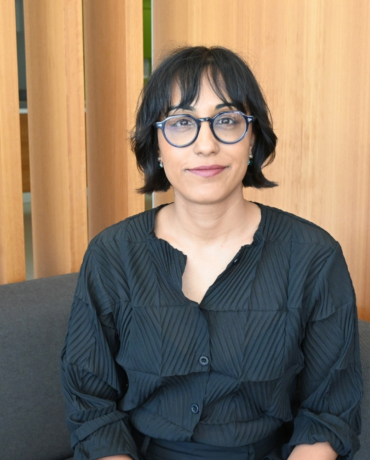Researchers at Neuroscience Research Australia (NeuRA) and UNSW Sydney have published encouraging results of their reactive balance training program that shows a 60 per cent risk reduction in falls due to trips and slips in older adults, in the Journal of Gerontology: Medical Sciences. This program is now being replicated to help those with Parkinson’s disease, and early indicators show promising results.
The reactive balance training program works on a retraining-the-brain protocol developed from learning on a purpose-built slip-and-trip walkway, the only one of its kind in the world. Participants, supported by a safety harness walk along a pathway which has a series of unexpected booby traps – boards spring up to cause a trip and sliding tiles create a slip – to which the brain and the body need to respond quickly. The learned response mechanism helps to retrain the brain to stay agile, respond faster to potential hazards, and correct its balance to prevent a fall.
NeuRA has replicated the slip-and-trip study to reduce falls risks in people with Parkinson’s in a study called SAFE-PD, which is already showing promising results.
More than 80,000 people are living with Parkinson’s disease in Australia, and of these, approximately two thirds will fall each year, resulting in injuries, hospitalisations, and even death, which is devastating, widespread and costly. The prevalence of Parkinson’s disease is expected to double between 2010 and 2040, and the associated human and economic burden will also grow.
NeuRA’s goal is to develop innovative therapies to improve balance and prevent falls in people with Parkinson’s, such as the SAFE-PD Study.
Commenting on SAFE-PD, Professor Stephen Lord says there have been improvements in the balance and gait of the participants with Parkinson’s disease using the SAFE-PD program.
“The early results are in line with the success of our published study, which is encouraging because we know that falls in people with Parkinson’s are widespread and often devastating,” says Professor Lord.
How does the SAFE-PD Program work
Participants in the SAFE-PD training group first work through a series of stepping exercises delivered via a video gaming system and electronic mat connected to their television or computer at home. They train for around one to two hours per week.
“The games are inspired by video-games such as Tetris and Pacman, are fun and their difficulty can be easily adjusted. The games are designed to stimulate the brain, muscle, balance and improve quick stepping in desired directions,” says Dr Yoshiro Okubo, lead author on the paper in the Journal of Gerontology: Medical Sciences.
The participants are then invited to undertake the 1‑hour reactive balance training using trips and slips at NeuRA at weeks four and eight.
“In people with Parkinson’s disease, it is important to train in the context similar to real life,” says Dr Okubo, adding, “repeated exposure to trips and slips can help to ensure that their practised stepping is automatically triggered by the daily life fall hazards.”
The advances in fall prevention made in this project and the team’s future work have the potential to reduce personal and financial costs to individuals, their families, healthcare resources and improve the quality of life for people with Parkinson’s disease who are at risk of falling.
Professor Peter Schofield, CEO of NeuRA says falls can be a devastating and regular event for people living with Parkinson’s disease.
“The SAFE-PD program is an important innovation developed to help reduce the risk of falling associated with Parkinson’s in Australia and can be translated using technology around the world,” says Professor Schofield.
Be part of the trial
The SAFE-PD study team is now recruiting people with mild to moderate stage Parkinson’s disease who live around Sydney.
Contact Paulo Pelicioni
Email: email hidden; JavaScript is required | Study webpage: neura.edu.au/clinical-trial/safe-pd/
Phone: 02−9399−1024
For the media
Contact: Ellice Mol 0415 224 886
Media Kit drive.google.com/open?id=1AVHqk134ZzhNJKe4tIb22N_aKxtnBdGF
1. Participant case study
2. Digital content/and B‑roll
3. Selection of images
4. PDF of paper in Journal of Gerontology: Medical Sciences
